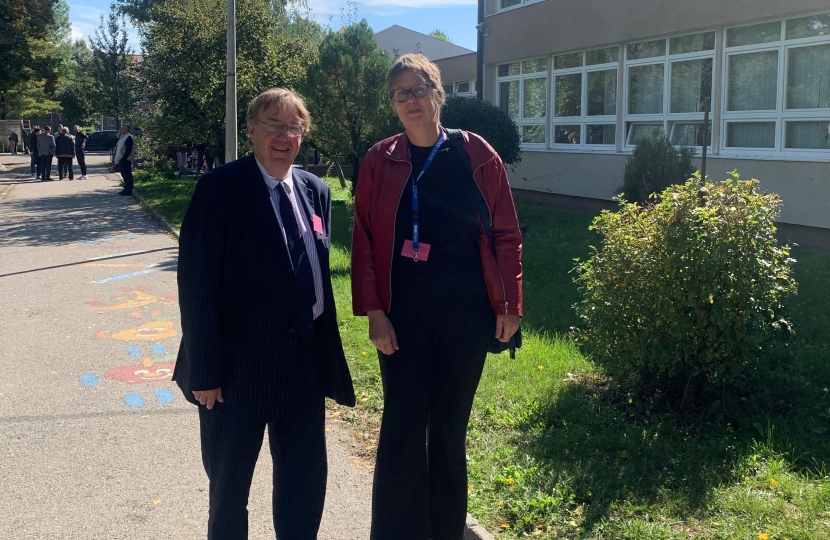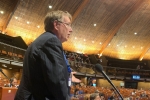
Further to my piece on Friday 30th September I am now able to report back on the mission to observe the presidential election in Bosnia-Herzegovina. The UK members of the delegation also included Lord Russell and Lord Keen.
We found the political situation in Bosnia-Herzegovina very restive. Young people I talked to were not confident of the future of their country and were therefore leaving in droves. As Lords Russell and Keen point out below, the Dayton Accord has left Bosnia-Herzegovina with a very complex constitution. What this means in terms of electoral practice is that for some voters it took 30 minutes when in the polling booth to read the literature and vote in the proper way. This burden is too much for a country and disadvantages those of humbler background. That they can vote without being at the front of a gun is testament to the fact that as a result of Dayton, violence was all but absent from the election scene. However, few had a long-term faith that it would remain so.
Lord Russell commented: “I participated in the pre-election mission as well as the election monitoring. The concerns that were expressed to us by some parties during the pre-election mission about any escalation in hate speech and divisive rhetoric, and even the fear of violence, proved to be unfounded. The election was peaceful, good-humoured and mostly well-organised. The 50% turnout, 2% lower than the 2018 election, was an eloquent reflection of widespread voter fatigue and disdain for the highly complex 1995 Dayton Accord constitution, which has ceased military and guerrilla hostilities but has produced political stalemate and delayed much needed change. The High Representative moved swiftly, at the stroke of 7.00pm as the polls closed, to institute some new changes to the constitution which are designed to stymie those who have repeatedly blocked, after each election, the creation of a new functioning government. Let us hope that this is successful.”
Lord Keen commented: “The Dayton Accord of 1995 was effective in the primary aim of ending hostilities in Bosnia & Herzegovina. However, in order to secure that outcome, the Accord conferred upon Bosnia & Herzegovina a complex and unwieldy legislative scheme which in turn requires a complex and unwieldy electoral process. The election process is, as a consequence, slow and prone to error. It was nevertheless clear during the monitoring of the election process that it was generally well organised and allowed voter participation free from any obvious signs of undue influence or intimidation.”
In the short term this mission was successful in that we were able to verify a peaceful and fair election. However in the longer term many questions remain about the stability of the country.
PHOTO: John with a Dutch Senator outside a polling station


